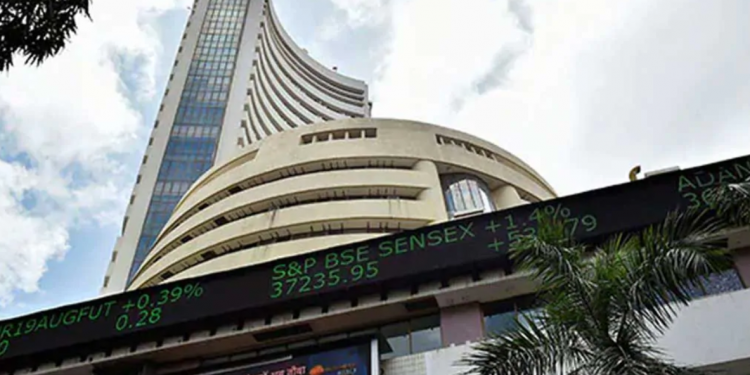Mumbai: Despite questions over an apparent disconnect between the markets and the real economy, French brokerage BNP Paribas Tuesday said it is ‘overweight’ on Indian securities and sees the 30-share BSE benchmark Sensex rising by over 9 per cent to 50,500 points by 2021-end.
The big are getting bigger in India, and the same help the equities market, the brokerage said, flagging sagging urban incomes, persistently high inflation and “questionable quality” of bank balance sheets as concerning factors for the country.
After a 30 per cent fall in the early days of the pandemic, the Indian markets have seen a strong rebound and risen over 70 per cent since April this year.
While critics attribute the rally to a global liquidity glut, investors say they are taking a longer-term bet on the economy’s prospects. There are also some who are concerned about the excessive concentration in a few stocks.
“In terms of stock selection, India continues to benefit from two phenomena – the big getting bigger (and those ‘big’ stocks largely constitute the investable market) and availability of quality stocks in relative abundance compared with its Asian peers,” analysts at the brokerage said.
It further said economic recovery in India seems well entrenched and some high frequency indicators like auto sales, steel and cement consumption and railway freight are at or higher than pre-COVID levels.
In some pockets of discretionary consumption, like passenger vehicles, feedback from manufacturers indicates not just inventory restocking but also a genuine uptick in retail demand, it added.
Recent policy initiatives like changes in agriculture marketing laws, labour laws and production-linked incentive (PLI) scheme for 10 sectors are aimed at boosting agricultural incomes and incentivising labour-intensive and export-focused investments, and their impact will be felt over the longer term, it said.
However, the brokerage voiced concern over the sustainability of the growth process and mentioned sagging urban incomes, persistently high inflation and “questionable quality” of bank balance sheets as the challenges on this front.
Urban employment destruction and income compression have clearly been much more pronounced than rural incomes, resulting in a decline in the urban propensity to consume non-essentials, it said, terming it a worrying sign.
For support to urban incomes, investments would need to pick up but low capacity utilisations and banks’ stressed balance sheets are a hurdle, it added.
PTI







































